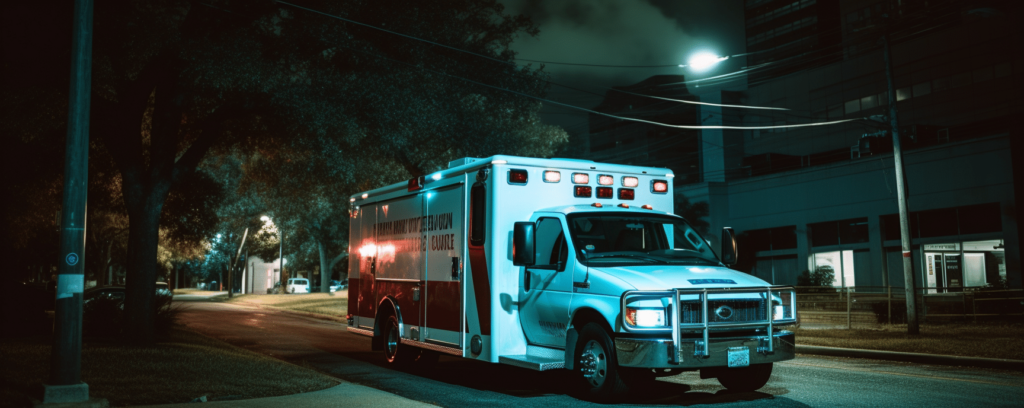If I Go to the Hospital After a Car Accident, Who Pays?
Last updated Thursday, March 14th, 2024

After a car accident, if I go to the hospital after a car accident who pays, depends on specific factors such as fault, insurance policies, and state laws. We’ll provide a clear guide on how these factors interact, so you can understand who is likely responsible for your hospital bills following a car accident. This article prepares you to deal with the financial aspects of post-accident medical care, outlining the role of auto insurance, health insurance, and personal responsibility without overwhelming you with details.
Key Takeaways
- The at-fault driver’s insurance generally covers medical bills after an accident, but establishing fault can be complex and requires reviewing police reports, witness statements, and insurance investigations.
- Auto insurance policies prioritize medical expenses coverage with options like Personal Injury Protection (PIP) and Medical Payments (MedPay), with health insurance potentially covering additional costs after auto coverage limits are reached.
- A personal injury claim against the at-fault driver may be necessary to cover medical expenses, and legal representation can help in securing fair compensation, while underinsured motorist coverage offers an extra layer of financial protection.
Get Your FREE Case Review Today
Contact us today and we will help you get the compensation that you deserve.
or Send Us Your Case DetailsGet Your FREE Case Review Today
Contact us today and we will help you get the compensation that you deserve.
or Send Us Your Case DetailsDetermining Financial Responsibility Post-Accident
Who should foot the bill for medical expenses resulting from a car accident? The answer hinges largely on who was at fault in the incident. A principle known as third-party liability often applies, indicating that the driver responsible for causing the accident should bear the costs, such as medical bills for others injured in the accident. If you are not at fault, the other driver is generally liable for your medical bills. However, your own car insurance may also provide some coverage, depending on your policy and applicable state laws.
Understanding who is financially responsible for your medical expenses is the first step to managing costs after a car accident. But how do you determine who was at fault? And what role does your insurance policy play? Let’s delve into these questions.
Establishing Fault in an Auto Accident
Determining fault in a car accident is critical, as the at-fault party or their insurer is typically expected to cover the medical bills. However, establishing fault is not always straightforward. It involves analyzing:
- Traffic laws
- Witness statements
- Police reports
- Findings of insurance company investigations
The police report plays a pivotal role in this process. It provides an objective account of the accident, often including the responding officer’s opinion on the cause. This report is heavily relied upon by insurance companies and legal professionals in their investigations.
Insurance Policy Review: Understanding Your Coverage

- Covered drivers
- Insured vehicles
- Coverage limits
- Deductibles
Understanding the extent, exclusions, and limitations of your coverage before an accident occurs can help manage potential accident medical bills, especially when dealing with accident-related medical bills.
For example, if your policy includes medical payments coverage, it could help cover medical expenses, irrespective of who’s at fault. Understanding such nuances in your policy can help you leverage it effectively to minimize out-of-pocket costs.
Immediate Steps to Take at the Hospital
Once you’re at the hospital, it’s crucial to provide detailed information about the car accident, including:
- The date
- The time
- The location
- The parties involved
Such information will ensure accurate billing and records. Offer a detailed account of your injuries and any medical care received at the scene or en route to the hospital to ensure proper documentation and care.
Additionally, keep track of all documentation provided by the hospital, such as discharge papers, treatment plans, and instructions. These documents are essential for insurance claims and potential legal action. Also, inform the hospital billing department if the at-fault party’s insurance is covering the costs, to ensure proper billing and prevent direct charges to you or your health insurance.
The Interplay Between Auto Insurance and Health Insurance
In the event of a car accident, your auto insurance policy typically prioritizes coverage for medical expenses. This means that it may cover medical bills before other types of expenses. Various coverages that can be utilized for your medical treatment include:
- Personal Injury Protection (PIP)
- Medical payments coverage (MedPay)
- Health insurance
- The at-fault driver’s insurance
Interestingly, using your health insurance for accident-related medical treatment can be beneficial. It allows you to benefit from negotiated discounts with medical providers. Once your auto insurance coverage limits are reached, your health insurance can step in to cover treatment for car accident injuries. This can provide added financial support in case of serious medical expenses..
Let’s delve deeper into how these different types of coverage work.
Medical Payments Coverage and PIP
Medical payments coverage (MedPay) is an optional coverage that helps pay for an insured or their passengers’ medical expenses after a car accident, up to a set coverage limit. Importantly, MedPay provides reimbursement for medical expenses, regardless of who was at fault in the accident.
On the other hand, Personal Injury Protection (PIP) is mandatory in no-fault states and covers medical expenses, irrespective of who caused the car accident. Both MedPay and PIP can be critical in ensuring that you have the necessary financial resources to cover medical costs after an accident.
Role of Health Insurance
While auto insurance typically takes precedence, health insurance can play a crucial role in managing accident-related medical bills. Once auto insurance limits are exhausted, your health insurance may kick in, subject to deductibles and co-pays. In fact, MedPay can help cover expenses such as:
- health insurance deductibles and co-pays
- doctor or hospital visits
- surgery
- X-rays
- ambulance fees
- professional nursing services
However, your health insurance coverage depends on the policy type, network restrictions, and specific policy exclusions for certain treatments. For example, employer-sponsored health plans often have comprehensive coverage that can help cover medical expenses after a car accident, so it’s essential to provide your insurance information to all medical providers. Regularly reviewing your health insurance policies with your health insurance company, knowing your deductible, maximum out-of-pocket costs, and the portion of costs covered, can help you plan for potential expenses.
Subrogation Process
Subrogation occurs when an insurance company, after paying damages on someone’s behalf, seeks reimbursement from the party who originally owed the debt. This process helps insurance companies recover the costs they’ve covered. When health insurance is used for accident injury expenses, standard procedures like finding a qualified healthcare provider and paying deductibles are followed, but importantly, subrogation may be initiated to recoup the costs.
Health insurance companies, auto insurance companies, and government services like Medicare are the typical parties involved in subrogation processes. These entities play a key role in the resolution of claims and reimbursement. Understanding the subrogation process can help you navigate the complex landscape of medical billing after a car accident.
Seeking Compensation from the At-Fault Driver
Filing a personal injury claim against the at-fault driver’s insurance is essential to cover medical bills and related expenses when you are not at fault for a car accident, as they are typically responsible for your medical expenses. However, it’s critical to accurately calculate future medical expenses. Methods such as the Total Lifestyle Approach for creating life care plans or the Additional Expense Method to itemize each expected future expenditure can be used.
The testimony of the victim’s own physician and possibly a medical expert witness is often required to demonstrate the reasonable likelihood of ongoing care and recovery timeline, influencing settlement negotiations. Once the personal injury claim is settled, the victim cannot request additional funds; therefore, ensuring a comprehensive calculation of future medical expenses is essential.
It’s also important to track all additional expenses and lost income due to the injury to ensure comprehensive compensation for all economic damages incurred. If the insurance company denies or disputes a claim, hiring a lawyer to file a personal injury lawsuit might be necessary to recover damages through a legal judgment.
Legal Representation and Negotiation
Engaging a personal injury attorney can expedite the process of securing a full and fair insurance settlement. Attorneys can:
- Investigate the accident
- Determine liability
- Assess damages
- Collect evidence
- Initiate negotiations by sending a demand letter to the insurance company, stating the claim details, liability, expense documentation, and requested settlement.
Personal injury attorneys work to:
- Protect their clients from lowball settlement offers
- Ensure they advocate for maximum compensation
- File a lawsuit and continue negotiating for a fair resolution before trial if settlement negotiations are unfruitful
- Determine appropriate compensation amounts and negotiate on behalf of their clients
Legal expertise is crucial in these processes.
It is also imperative to inform the attorney about all medical treatments to ensure comprehensive compensation negotiations.
Underinsured Motorist Coverage
Underinsured motorist coverage is a critical component of your auto insurance policy. It protects you from financial losses when the at-fault driver’s insurance is insufficient to cover all your damages. This coverage steps in to cover excess expenses when the at-fault driver’s insurance does not cover all the damages.
Expenses covered by underinsured motorist coverage can range from vehicle repair costs to medical bills incurred due to the accident. Having underinsured motorist coverage offers an additional layer of financial protection after a car accident.
Managing Out-of-Pocket Expenses After an Accident

- Use health insurance to cover accident-related medical bills and switch to auto insurance if needed, especially considering health insurance deductibles represent an upfront cost.
- In case of disputes over fault or insufficient coverage, you might have to initially pay medical bills yourself.
- Subsequently pursue reimbursement by providing documentation and evidence to support your claim.
By following these steps, you can better manage your out-of-pocket expenses after an accident.
You can manage out-of-pocket expenses by negotiating payment plans, requesting discounts, or using financial assistance programs and government assistance like Medicaid. Additionally, preventing negative credit implications by ensuring medical bills do not go unpaid and utilizing relevant insurance coverage and assistance programs is crucial.
Payment Arrangements and Assistance Programs
Patients can negotiate payment plans with hospitals to manage medical bills over time without accruing interest, offering a cost-effective alternative to medical loans. It is essential for patients to discuss financial situations with their medical providers to negotiate and potentially reduce medical bills, especially for those paying out of pocket.
Financial assistance programs may provide aid to cover out-of-pocket medical expenses after a car accident, offering relief to those burdened by high costs. Some options for financial assistance include:
- Income-based forgiveness programs
- Financial assistance offered by hospitals
- Nonprofit organizations that provide grants, low-interest loans, and resources to help individuals with their medical bills.
These programs can make medical expenses more manageable for eligible patients by partnering with a medical provider.
Utilizing payment arrangements can aid in managing additional costs not covered by insurance, such as childcare or personal care assistance expenses.
Documentation and Record-Keeping
Documenting every out-of-pocket expense incurred after a car accident is crucial for compensation claims. Keeping detailed records of all receipts, bills, invoices, and maintaining records of every doctor’s visit, prescription, and therapy session is essential for supporting financial claims following an auto accident.
Patients should maintain a detailed spreadsheet with the following information:
- Service dates
- Provider names
- Costs
- Insurance coverage
They should also keep all records organized, as they may need to track insurance coverages and reimbursements. Organized and well-documented expenses can streamline the review process for insurance adjusters, thereby increasing the likelihood of obtaining full compensation.
Dealing with Discrepancies and Disputes
In cases where there is a dispute over the insurance settlement amount, policyholders can make use of an appraisal provision, which allows for a neutral party evaluation, aiding in settling the disagreement. Reimbursement for medical bills after a car accident is typically obtained through a settlement process. It is crucial to clearly present the claim with evidence to insurance companies, and to be prepared for potential disputes over the necessity of treatments.
If an insurance claim is denied or an unfairly low settlement offer is made, the claimant should provide a detailed written rebuttal supporting their position and be willing to engage in further negotiation or to pursue an appeal. After a car accident, the third-party billing process entails direct communication between the hospital and the insurance company, culminating in a settlement offer by the insurance company used to settle the comprehensive medical bill.
Challenging Billing Errors
Patients can request an itemized bill from hospitals to review and compare it with their records for any errors, discrepancies, or duplicate charges. It is crucial for patients to ensure that the billing codes on the medical bill accurately reflect the treatment they received, as incorrect codes can lead to overcharging or insurance claim denials.
The process of challenging billing errors includes drafting a well-structured appeal letter to the insurance company, detailing the discrepancies, and requesting a review of the charges. This proactive approach can result in significant savings and prevent unnecessary financial stress.
Insurance Claim Denials
Insurance claim denials can be daunting, but they can be addressed effectively. The first step is to understand the specific reasons for denial, whether due to policy exclusions, expirations, lack of full coverage, or criminal activity at the time of the accident. If a claim is denied because you are an excluded driver, failed to report the incident timely, there are liability disputes, or there are allegations of bad faith by the insurance company, these issues should be directly addressed in any appeal.
Gathering comprehensive evidence is a key step in appealing a car insurance claim denial. This evidence may include:
- Accident scene photos
- Eyewitness statements
- Medical reports
- Police reports
An appeal against an insurance claim denial can be filed by submitting additional evidence or clarification to prove the claim’s legitimacy. It is crucial to comply with the insurance company’s specified appeal process and to meet any related deadlines to avoid unnecessary delays or forfeiture of the claim.
Should an appeal be unsuccessful, policyholders have the right to file a complaint with their state’s insurance department for further review of the insurance company’s decision regarding their claim.
Long-Term Financial Protection
Long-term financial protection after a car accident is crucial. Not having a clear understanding of insurance coverages may result in unexpected financial strain and additional expenses not covered by the policy. It’s important to be well-informed about your car insurance company to avoid such situations.
Car accident victims may face additional financial burdens such as the need for job retraining programs when they are unable to return to their former employment.
Reviewing and Adjusting Insurance Policies
Regularly reviewing and updating insurance policies ensures that coverage keeps pace with life changes, such as health changes or the acquisition of new assets. A one-page policy summary can help in organizing and understanding insurance details, allowing for easier reviews and adjustments. Keeping track of policy numbers, contact information, issuance and expiration dates is also essential.
Policyholders should familiarize themselves with the following:
- Coverage for rental vehicles
- Collision damage waivers
- The terms of rental agreements
- Whether their auto insurance policy provides automatic coverage for a newly acquired or replacement vehicle
Beneficiaries should be regularly reviewed and updated to reflect current wishes, as they will receive the benefits regardless of changes to wills or trusts unless updated on the policy.
Establishing a Personal Injury Case
Engaging a personal injury attorney can be a strategic move for long-term financial protection. Personal injury attorneys specialize in car accidents and other types of injury cases, pursuing compensation for damages including medical costs, lost income, and pain and suffering. They can help you build a strong case, ensuring you receive the compensation you rightfully deserve.
Frequently Asked Questions
How is fault established in a car accident?
Fault in a car accident is established through analysis of traffic laws, witness statements, police reports, and insurance company investigations. It’s important to consider these factors when determining fault in a car accident.
What role does health insurance play in covering accident-related medical bills?
Health insurance can help cover accident-related medical bills once auto insurance limits are reached, but the coverage will depend on your policy type, network restrictions, and exclusions for specific treatments. Therefore, it’s important to review your policy details carefully.






